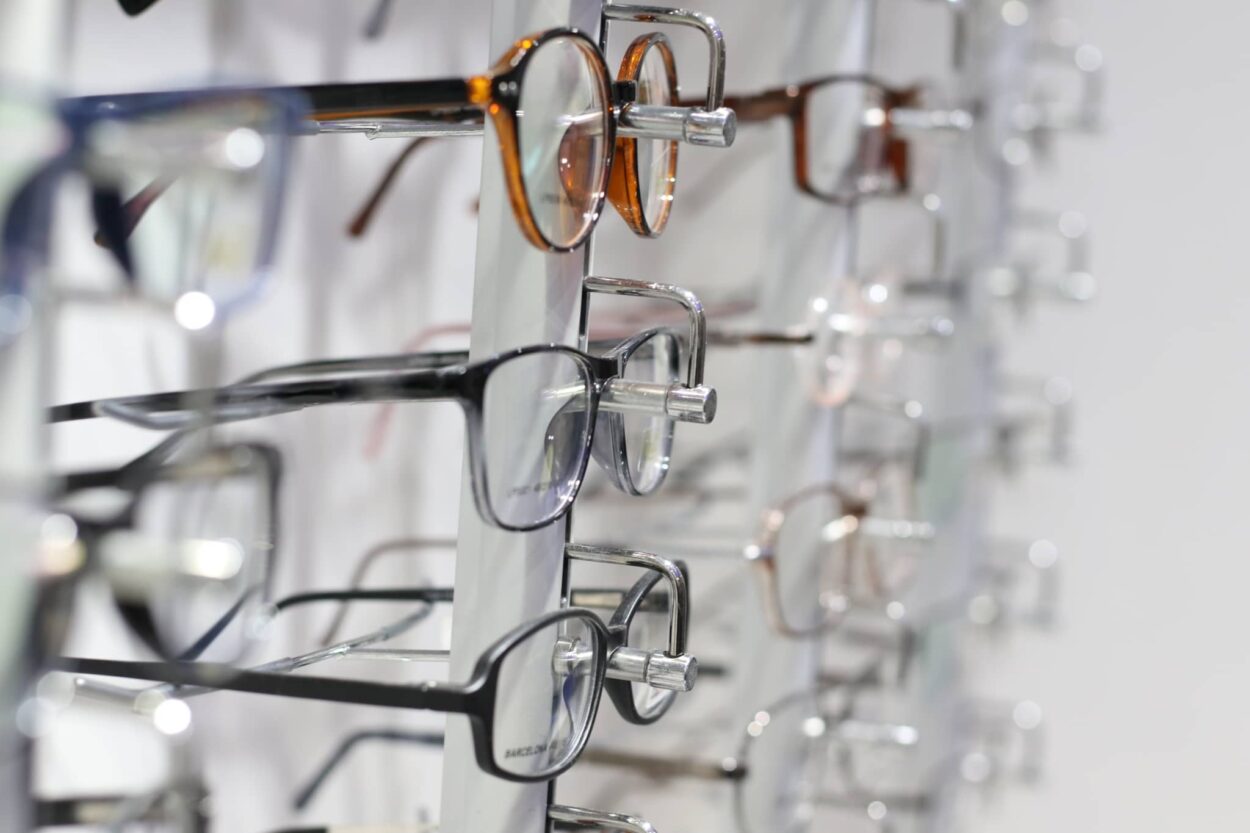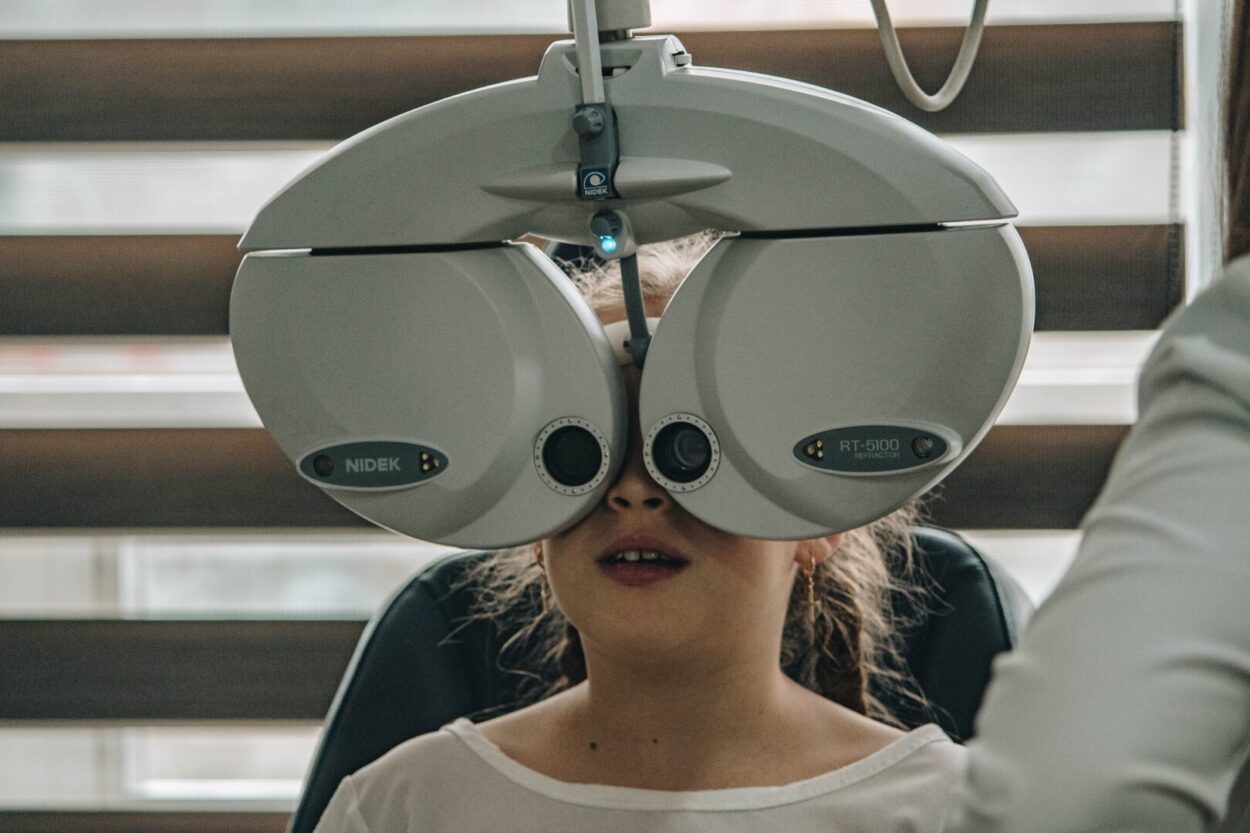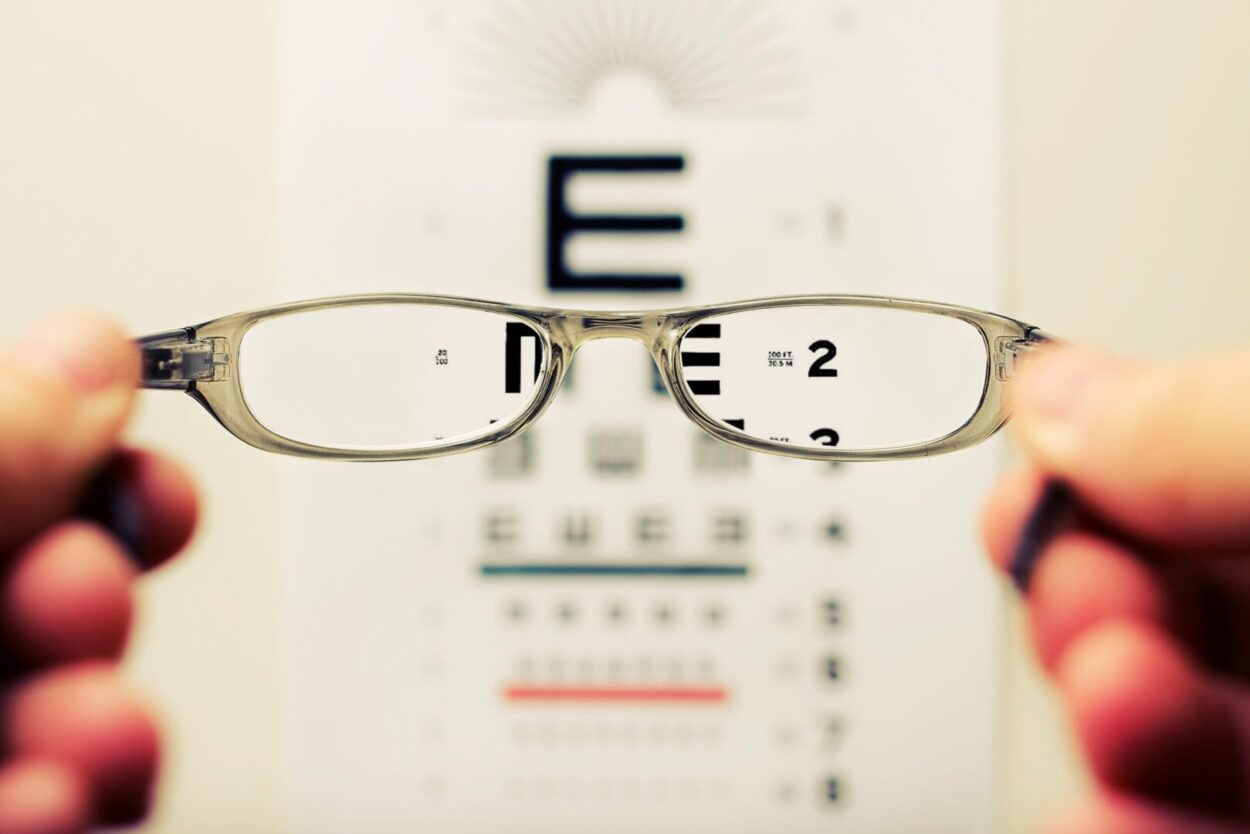Jasmine Birtles
Your money-making expert. Financial journalist, TV and radio personality.


Cheap glasses. Twenty-two million people in Britain could be forced to struggle with poor vision due to the cost of living crisis, according to the Association of Optometrists (AOP).
Optometry Today estimates that the average Brit spends £120 on each pair of glasses, so it’s not surprising that people may try to extend their use for as long as possible.
However, wearing glasses that are no longer suitable for you could end up damaging your long-term vision. It can also lead to debilitating headaches that could cost you more in the long run, through sickness and lost income.
But updating your prescription needn’t be such a financial burden. For starters, millions of people, including children, the over-60s and people receiving certain benefits, are entitled to discounted or free glasses on the NHS (to see if you are eligible, click here).
Even if you’re not entitled to discounted frames, you can still pick up a basic distance glasses for less than £10 – if you shop smart.
The key is to know exactly what you want and need, and don’t let yourself be tempted, tricked or pressured into getting extra features that will only jack up the price. There are some retailers that let you try glasses on at home – so a ‘try before you buy’ – which might add a bit more faff but could help avoid you being pressurised whilst in store.
With glasses, there’s a whole host of such “add-ons” to consider – or discount – from anti-blue light and anti-fogging technology, to Transitions lenses and varifocals. Some of these, like varifocals, might be a “must” for you, while someone else with the same sight problem as you may prefer to buy a pair of inexpensive distance glasses – and carry around a cheap set of readers for when they have to check a price in the supermarket.
The other thing to watch out for are the multi-buy offers. Opticians and online retailers tend to lean heavily into these promotions, which may appeal to people who want one pair of glasses to wear at home and another for using the computer in the office, but may not be necessary for you.

Specsavers has 10 different “buy this, get that” promotions on their website, not to mention all the usual age- or occupation-based money-off deals for kids, students, pensioners and key workers buried in the “offers” section on the website footer.
Their in-store teams will also really try to push multi-buy offers (we had to ask for over-60s discount in store as neither the staff or the adverts in store mentioned it).
That said, if you’re not eligible for discounts or just looking for one pair, don’t write Specsavers off. They have some incredibly competitive frames from £15, while your basic UV and sun tint coating only add another £15 to the bill.
Varifocals begin from £39, while polarising lenses or Reactions cost from £59.

Boots, too, is very much geared towards their “second pair half price” offer.
Starting price for frames are a little bit higher than Specsavers, beginning at £40, but like its rival they include scratch resistant coatings as standard.
To make them into varifocals, you have to add an extra £50 to the price.
Vision Express is also geared towards multi-buy offers like “50% off your second pair”.
What’s more, they have a bewildering number of add-ons, from anti-fog coating (which costs an extra £40 on top of your frames) to anti-scratch, water resistant and blue-light filtering (which costs an extra £70 per pair).
On the flip side, frames start from a very reasonable £25 for standard distance glasses, £50 for varifocals or £60 for bifocals, proving that even the big high street chains have some well-priced frames to try.
The big boys are by no means the cheapest, though. Many independents and smaller groups, like Brillen (which has stores in Birmingham, Tamworth, Manchester, Blackburn, Halifax, Huddersfield, Bradford and Middlesbrough) have incredible deals.
Brillen, for example, gives new customers a £20 Welcome Bonus off your first paid of “inexpensive single vision glasses” meaning you can pick up a pair of distance glasses from £9 (instead of the usual £29).
If you need varifocals, it’s a £45 Welcome Bonus, meaning you pay £49 a pair instead of the usual £94.
There are also other deals on offer, like two pairs of varifocals for £85.
Meanwhile, they’ve also placed a price of living cap on all extras (eg lens coatings), meaning “you never pay more than £225 for varifocal glasses or £109 for single vision, even if you configure the glasses with expensive extras for which you would otherwise have to pay over £750 from other providers”.
If you get annoyed with all the confusing offers, extras and “from prices”, you should try Asda. They’re by no means the cheapest opticians, but the price advertised is the price you pay.
Their glasses include all the add-ons as standard, so you’ll pay the same whether you’re looking for clear lenses or tints, varifocals or bog-standard distance glasses.
Even simpler, the frames are all lumped together into just two ranges: basic men’s/women’s glasses which cost £45 (free with NHS prescription), and the more luxurious £80 range (or two pairs for £120).
Of course, the best deals are often away from the high street. The main downside to online retailers is you’re not able to physically try on your glasses before buying, but most sites do have functions that allow you to try them on “virtually” either via your computer camera or by uploading a photo to their website.
Goggles4U has basic frames from £3.95 to a maximum of £59.99. They also offer huge discounts on these already low prices. For example, their one-off discount code Sale29 gives you up to 50 per cent off your frames and lenses, plus a further 29 per cent off the entire order, including all the extras like varifocal, bifocals, Photochromic lenses or anti-scratch coating.
To turn your basic glasses into bifocals add £14.95, for varifocals add £35.95, and if you want anti-reflective, UV and scratch resistant coating add just £3.95.
It’s so cheap, we were able to buy a pair bifocals with scratch resistance for £16.22, using discount codes.
Direct Sight is another incredibly competitive online retailer, which sells cheap glasses from £9. You can also get an extra 10 per cent off when you subscribe to their emails.
They have lots of very nice frames at the lower end of the spectrum, plus more expensive designer frames too, if you’re happy to splurge.
They operate the usual add-on system, if you want more than just basic lenses. For instance, you pay an extra £9.50 to make them anti-scratch, £15 to add sunglasses tint, £30 to add blue-light lens filter or £55 to make them Transitions lenses.
Bifocals cost an extra £35 on top of the basic frames, while varifocals are £45 extra.
The prices at Glasses Direct are almost identical to Direct Sight’s, with frames starting at £9, sunglasses costing an extra £15, and blue-light filter an extra £30, just like at Direct Sight. You’ll pay a couple of quid more for bifocals and varifocals, which cost an extra £39 and £49 respectively on top of your basic frames.
On the flip side, though, they have some good offers that Direct Sight don’t have, such as two pairs from £15, or two designer pairs from £35.
The only downside of both Glasses Direct and Direct Sight is that they make it quite hard to opt out of some of the extras. Both websites take you to a final page where they try to up-sell various scratch- and smudge-resistant lens coatings, with no obvious free option to select. Don’t be fooled, though, you don’t actually have to choose one of the four chargeable extras; you can continue without these add-ons if you click on the text beneath where it says “continue with basic lenses” or “click here to proceed”.
Another good online site for cheap glasses is Select Specs which has glasses from £9.99 (women) and £12.75 (men). Again, you get an extra 10 per cent off your first order when you sign up to their email list.
The extras are at near-parity with Glasses Direct and Direct Sight. For instance, it costs an extra £8 for anti-scratch and anti-reflection, £15 for blue-light filter, £15 for sunglasses, and £30 for light adaptive lenses.
Bifocals are a bit cheaper, at £25 on top of the basic frames, while varifocals are £45 extra.
On the flip side, the lens coatings – eg blue-light filters – are more expensive for bifocal and varifocal glasses than they are for distance glasses.
The frames at Glasses2You start from just £19.95, while you can get some huge savings on orders over £50, using the various discount codes plastered across its website.
Again, it costs an additional £25 to turn basic frames into bifocals, or £55 to turn them into varifocals.
Meanwhile, anti-scratch coating starts from just £5, while anti-UV, anti-reflective and anti-scratch coating costs £20 on top of your basic frames.
Most the online retailers have money off deals on third party discount code sites, and Spex4Less is no exception.
But even if you cant be faffed with that – or are struggling to find one still in date – you’ll find plenty of cheap frames to choose from at Spex4Less.
Single vision lenses start from just £12.97. Bifocals cost an additional £35, while varifocals cost an extra £60.
To turn them into sunglasses, meanwhile, will set you back an additional £10, or for Photochromic lenses you’re looking at an extra £50.
Scratch resistant coating comes as standard, UV coating is £5, while blue-light filter is an extra £40.
Sign up to their newsletter for a free upgrade to thin and light lenses (worth £40) or for anti-reflective coating (worth £20).
Like Spex4Less, Firmoo offers some decent discounts and cheap glasses including two for one on frames, plus an extra 15 per cent off blue-light, reading and Transitions lenses (use discount code 2FOR1 at checkout).
Even without discounts, basic distance glasses start from a mere £9 for women and £22 for men.
Sunglasses tint is an extra £9, blue-light filtering is an extra £14, while Transitions lenses cost an extra £97.
Sadly, varifocals are no longer available for Firmoo’s UK customers.
Next up – we Ask Jasmine “What you can do if you can’t afford Dental Care” here.
Disclaimer: MoneyMagpie is not a licensed financial advisor and therefore information found here including opinions, commentary, suggestions or strategies are for informational, entertainment or educational purposes only. This should not be considered as financial advice. Anyone thinking of investing should conduct their own due diligence.

Thank you, normally I was doomed into paying £600 a pair for high index lenses (-6.5 or thereabouts) but after reading your article decided to contact ASDA for a quote. What a difference in price, I was told that if my prescription warranted thinner lenses they would not charge me any extra for the 1.67 polycarbonate. The only stipulation was that it was frames of £45 or more, also if I insisted on the Ultra thin lenses 1.74 it would only be £49 more. This is already over £400 saved and all the anti fog/scratch/reflection coatings etc, etc, (ALL optional… Read more »